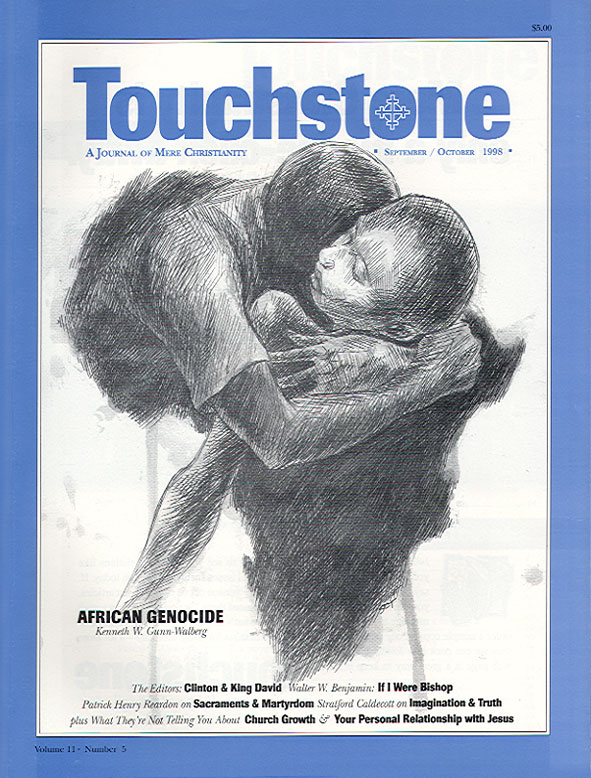Bishops & the Word
The way I would lodge the charge that the Anglican bishops’ real canon of authority is not Scripture as a whole but some sort of flaccid rule of contemporary value and relevance is by saying that they place themselves against the faith of the Church as a historical body by refusing to recognize Scripture as cohesive and unitary. Thus they regard themselves as under no obligation to recognize the connections between Scriptures the Church has always claimed exist—the Psalms and Christology, or the ordo creationis on the relation of the sexes, for example. They are free to regard Scripture as so many disconnected fragments bound together not by a divine Mind in communion with the Church, but by what their own science is able to discern at any given time. The churches, even in their disagreements over interpretation, have stipulated that the Scriptures are coherent and cohesive, the prophetic and apostolic playing field upon whose authority they can all meet and agree. They have, in other words, regarded Scripture as canon. In making it something less, the liberals sever themselves in yet another way from Christianity as a historical, that is, incarnational, faith.
I know this may seem rather minute, but it is pointless to argue with people on interpretation and the extent of the canon (these may be Christian disagreements) when the real differences are far more fundamental, having to do with the liberals’ complete departure from the Church’s assumption that the whole canon of Scripture is iconic, that is, when rightly interpreted is the Word of God.
Briefly put, the Church begins with the patrimonial assumption that Scripture is true, and attempts to construct its understanding of its meaning in accordance therewith, attributing difficulties to its own incomplete understanding rather than to Scripture itself. Liberalism begins with the assumption that the Scriptures, while important to Christianity, must be demonstrated true by criteria external and superior to the Christian faith itself (which dooms the Scriptures to some degree of falsity at the outset). The Church recognizes no such criteria. I do not believe this means it asserts that the same criteria by which Christians judge truth are unavailable to others. Rather it means that Scripture is the peculiar possession of the Church as the body of Christ and the ground and pillar of truth.
THIS ARTICLE ONLY AVAILABLE TO SUBSCRIBERS.
FOR QUICK ACCESS:
S. M. Hutchens is a senior editor and longtime writer for Touchstone.
subscription options
Order
Print/Online Subscription

Get six issues (one year) of Touchstone PLUS full online access including pdf downloads for only $39.95. That's only $3.34 per month!
Order
Online Only
Subscription

Get a one-year full-access subscription to the Touchstone online archives for only $19.95. That's only $1.66 per month!
bulk subscriptions
Order Touchstone subscriptions in bulk and save $10 per sub! Each subscription includes 6 issues of Touchstone plus full online access to touchstonemag.com—including archives, videos, and pdf downloads of recent issues for only $29.95 each! Great for churches or study groups.
Transactions will be processed on a secure server.
more from the online archives
calling all readers
Please Donate
"There are magazines worth reading but few worth saving . . . Touchstone is just such a magazine."
—Alice von Hildebrand
"Here we do not concede one square millimeter of territory to falsehood, folly, contemporary sentimentality, or fashion. We speak the truth, and let God be our judge. . . . Touchstone is the one committedly Christian conservative journal."
—Anthony Esolen, Touchstone senior editor









